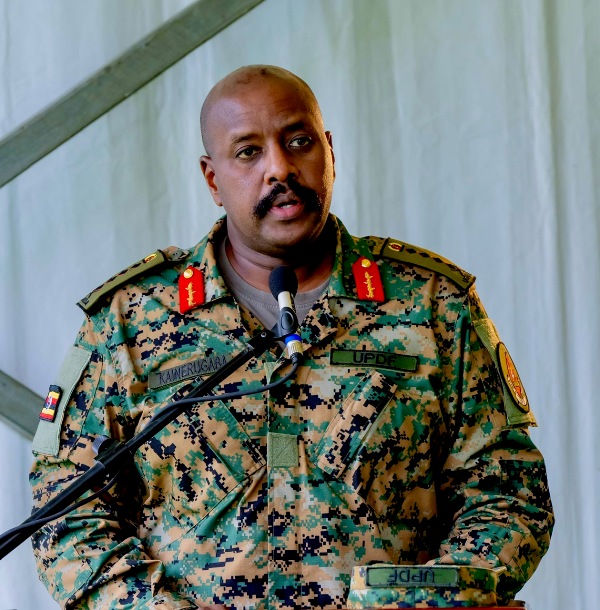Muhoozi to Bobi Wine: I personally love Baganda, very much
The question that now hangs in the air is whether this increasingly personal and tribalized confrontation will awaken the moral voice of Uganda’s elders — or further entrench divisions in an already fragile political landscape.

In a characteristically fiery response, Gen. Muhoozi Kainerugaba, the son of President Yoweri Museveni and Commander of the UPDF Defence Forces, has dismissed allegations made by opposition leader Robert Kyagulanyi, also known as Bobi Wine, accusing him of promoting tribalism and ethnic violence in Uganda.
In an open letter addressed to elders and opinion leaders from the Ankole and Kigezi sub-regions, Bobi Wine accused Muhoozi of weaponizing ethnicity, engaging in torture, and inciting hatred through divisive rhetoric and social media posts. The letter, widely circulated on social platforms and news outlets, described a disturbing pattern of ethnic bias, including the alleged targeted abduction and mistreatment of Bobi Wine’s close associate and bodyguard, Edward Ssebuufu, alias Eddie Mutwe.
However, in a sharp and controversial counterattack posted on his X (formerly Twitter) account, Gen. Muhoozi dismissed the allegations as “shallow and stupid,” claiming Bobi Wine lacks intellectual depth and plays the tribalism card for sympathy and political gain.
“Kabobi in his usual shallowness and stupidity tries to tribalize every beating he gets from us. You have to excuse him. He is not the brightest guy. The guy got a diploma in Music, Dance and Drama,” Muhoozi wrote.
Muhoozi continued to defend himself against accusations of tribal hatred by stating that he holds no animosity toward the Baganda people, whom Bobi Wine claims are being targeted. “I personally love Baganda very much! Baganda and Banyankore are probably the closest people in the world,” he added.
The remarks have since drawn mixed reactions from the public, with some supporters rallying behind Muhoozi for “setting the record straight,” while others condemned the language used, calling it demeaning and dismissive of serious human rights concerns.
Bobi Wine’s original letter appealed to key cultural, religious, and political figures from southwestern Uganda to speak out against what he described as Muhoozi dangerous and “barbaric” actions, which, he warned, risk plunging the country into ethnic conflict. He cited the November 2020 protests, in which over 50 Ugandans were killed, as one of several examples of violent state action linked to Muhoozi’s command. He also accused him of mocking cultural identity and using tribalism as a political weapon.
“Muhoozi is driving an extremely dangerous narrative and committing targeted crimes against a section of people on account of their ethnic origin,” Bobi Wine wrote in the letter. “His latest victim is my personal friend and bodyguard Edward Ssebuufu aka Eddie Mutwe, a Muganda by tribe.”
Muhoozi’s response has further polarized Uganda’s political discourse, with some observers suggesting that both sides are fueling ethnic sentiment for political leverage. Analysts have pointed out that Uganda’s history is riddled with tribal divisions that have often been exploited during times of political contestation.
“Both leaders are treading on dangerous ground,” said a political commentator from Makerere University. “When leaders reduce national issues to tribal chess matches, it not only threatens unity but erodes the legitimacy of institutions meant to protect all citizens.”
As the 2026 general elections draw closer, the war of words between Bobi Wine and Gen. Muhoozi appears to be intensifying, with their political rivalry spilling into the cultural and ethnic fabric of the nation. While Bobi Wine seeks to portray himself as a voice for marginalized communities and victims of state brutality, Muhoozi is positioning himself as a patriot defending the legacy of his father’s leadership.
The question that now hangs in the air is whether this increasingly personal and tribalized confrontation will awaken the moral voice of Uganda’s elders — or further entrench divisions in an already fragile political landscape.







